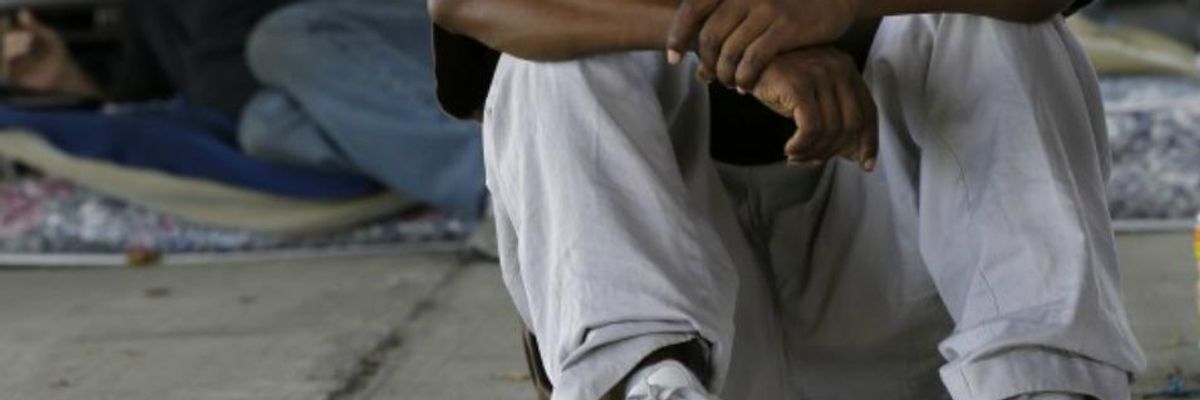In 1962, Thomas Kuhn wrote The Structure of Scientific Revolution. In it he defined and popularized the concept of "paradigm shift". Kuhn argues that scientific advancement is not evolutionary, but a "series of peaceful interludes punctuated by intellectually violent revolutions", and in those revolutions "one conceptual world view is replaced by another".
I feel that we need a paradigm shift in how we perceive the problems of poverty and homelessness and that it is time, right now, for an intellectually violent revolution.
We can start by no longer calling efforts to address poverty a 'War on Poverty'. However well-intentioned that phrase might have been in its original use, it has come to mean something else entirely over time. A war on poverty now implies that poverty, and the poor, are enemies we must overcome as a society.
In an article published this week by TalkPoverty called How We Punish People for Being Poor Rebecca Vallas points out the sundry ways our society blithely exploits the poor. There are also news reports every day depicting how we harass, fine, incarcerate and abuse people for the 'crime' of being poor.
But these articles and reports do not address the underlying issue of why our society feels it has the right to punish people for being poor.
Rather than point out the reasons for that, and analyzing them - we need a paradigm shift away from the attitudes and beliefs that allow these kinds of abuses to take place as a matter of course.
So how do we do this?
We need to start by viewing and treating poverty and homelessness as what they are: human and civil rights issues.
We've seen this happen before: Blacks were characterized as inferior to Whites (and treated that way); women were thought of as window dressing for men's lives (and treated that way); and LGBT people were dismissed as abnormal (and treated that way).
Nothing fundamentally changed in how we viewed these groups of persons until we started recognizing them as fully human, entitled to the same human and constitutional rights as anyone else.
The same has to happen now with the poor. Here are my specific recommendations:
Decriminalize homelessness. But don't stop there; let's make it a criminal offense, a hate crime, for anyone caught abusing the poor and homeless just for being poor or homeless.
A national Housing First mandate. Housing is the humane and dignified solution to homelessness, not isolating, abusing, fining and imprisoning.
Do whatever it takes to force every state to accept Medicaid expansion. Basic healthcare is a human right; not something that should be denied for short-sighted political reasons.
Well, I'd like to stop right there. One of the problems of trying to address poverty and homelessness is there are so many sub-issues one can get lost in them all and end up accomplishing nothing.
This Friday, October 10th, marks World Homeless Action Day. Let's observe it by beginning to recognize poverty and homelessness as conditions of human existence--protected by moral and civil law--and not as social abnormalities that need to be warred against psychologically, emotionally and physically.

